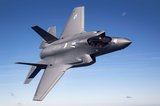GAO calls for MDA to change cost estimates
THAAD was among the MDA programmes analysed in the latest GAO report. (Photo: MDA)
The US Government Accountability Office (GAO) recommended changes to programmes run by the Missile Defense Agency (MDA) in a report released on 2 February.
The document pointed out that the MDA's cost estimates for these systems are incomplete and do not include programmes’ full life cycles. Nor does the MDA regularly update flight test price estimates with actual costs.
As a result, the GAO argued, Congress has only limited insight into MDA spending and annual budget requests.
In order to improve this process, the report made six recommendations to MDA. For example, the GAO called for all programmes with a designated lead military service to be covered by a dedicated Joint Cost Estimate (JCE) or a system-level JCE that is promptly updated with any new costs.
Another recommendation was updating relevant policies and processes to require a comparison against the original programme cost baseline in each iteration of the agency's baseline reporting.
The GAO also called for the MDA to update relevant policies and processes to track each system's costs — the combined total of all programmes that comprise the system — in its annual baseline reporting.
Since 2002, the Missile Defense Agency has received more than $174 billion to develop systems that detect, track and defeat enemy missiles.
Among these systems are the Terminal High Altitude Area Defense (THAAD) weapon system and the Hypersonic and Ballistic Tracking Space Sensor (HBTSS).
Related Equipment in Defence Insight
More from Defence Notes
-
![Taiwan approved for purchase of $11 billion in weapons from US]()
Taiwan approved for purchase of $11 billion in weapons from US
The US State Department’s approval of a multi-billion-dollar sale of weapons to Taiwan includes tactical mission networks equipment, uncrewed aerial systems, artillery rocket systems and self-propelled howitzers as well as anti-tank guided missiles.
-
![US National Security Strategy prioritises advanced military capabilities and national industry]()
US National Security Strategy prioritises advanced military capabilities and national industry
The 2025 NSS has emphasised investment in the US nuclear and air defence inventory and national industry, but it leaves multiple unanswered questions on how the White House will implement this approach.
-
![Canada set to look away from its neighbour and across the Atlantic for partners]()
Canada set to look away from its neighbour and across the Atlantic for partners
While non-EU UK struggles to join the Security Action for Europe initiative, which provides loans for defence programmes, Canada has become the first country outside Europe to get access – and did so for a nominal fee.
-
![NATO experiments with solutions to integrate networks, AI and uncrewed systems]()
NATO experiments with solutions to integrate networks, AI and uncrewed systems
During the latest edition of the NATO DiBaX, the alliance tested multiple capabilities to inform requirements for future efforts.
























